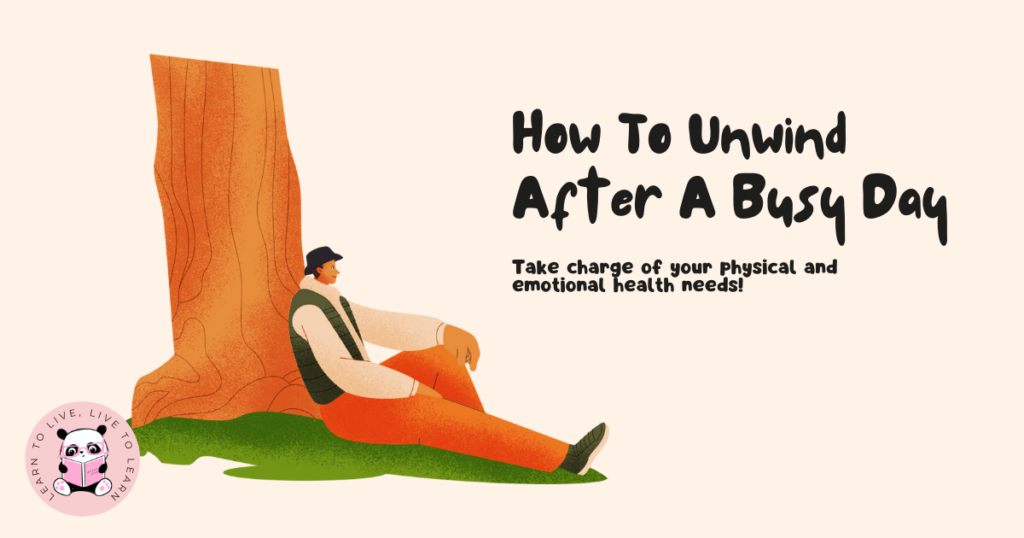Do Affirmations Really Work | How To Make Affirmations Life-Transforming
Written by Michelle Ong | May 12, 2024 | Wellness, Opinion

Are affirmations just empty words, or can they truly transform our lives? We’ll delve into the science behind how our brains respond to affirmations and explore strategies to make them work for us.
Have you ever wondered about the hype around daily affirmations for self-care? Some swear by their transformative power, while others dismiss them as overrated as it did not work for them. I found myself at a low point, feeling stuck and dissatisfied with life. That’s when I decided to give daily affirmations a shot. In this post, I will take you through my journey and what I discovered along the way.
What Is Daily Affirmations & Its Impact?
“What you think, you become. What you feel, you attract. What you imagine, you create.”
Buddha
I started by researching what daily affirmations are and how they can affect us. Essentially, it involves repeating positive statements to affirm a need within yourself.
On average, we have 60-70,000 thoughts a day, with 95% being automatic. These thoughts, whether positive or negative, shape our emotions and actions. Negative thoughts can lead to bad moods, laziness, and frustration. To feel better, we need to change our thinking and take action.
By practicing daily affirmations, you’re essentially filling your mind with positive self-talk each day. This helps illuminate negative thought patterns and areas that need improvement. You’ll develop greater self-awareness and better understand how you think. With this awareness, you can avoid self-sabotage behaviors, boosting confidence and reducing self-doubt.
I explored different variations of doing this activity. You can write these statements down and recite them aloud in front of a mirror, or use ready-made affirmations in videos or audio tracks. Some pair affirmations with meditation.
The key is consistency—doing this activity daily for the recommended 21 days to make it a habit. By integrating affirmations into your routine, they can reframe your negative self-talk, affirm positive thoughts, and channel your energy towards focusing on areas that need improvement.
“The only limits that exist are the ones you place on yourself. Affirmations can break those limits and set you free.”
Speaking affirmations aloud adds conviction, especially during tough times. They serve as guideposts in your life, empowering you to take control, create solutions, and align your actions with your vision, goals, and values.
My Experiments: What I Did
It’s interesting how some people find affirmations life-changing while others don’t. I decided to give them a shot myself and explored various affirmation videos on YouTube. As I went through various videos, I realized that not all affirmations resonated with me. Some actually made me feel worse, highlighting areas where I felt lacking. But I managed to find videos that could better relate to me and my circumstance.
I also experimented with writing my own affirmations and reciting them, giving myself the flexibility to choose when and how I wanted to do it. Whether I felt like repeating them silently in my head or saying them aloud. I felt that it is important to make this activity as enjoyable as possible. So I experimented with different times of the day, doing it simultaneously with light stretches and yoga, and even tried enhancing the experience with aromatherapy and music.
After much trial and error, I found what worked best for me and incorporated it into my daily routine. Now, affirmations have become an essential part of my life, helping me navigate through difficult times, boosting my confidence, and providing a sense of peace and gratitude. It’s been a journey of self-discovery and improvement, and I’m grateful for its positive impact on my life.
So my takeaway from my experience is to regard affirmations as a tool—a tool that could either work wonders or fall flat, depending on how it is used.
Why Affirmations Can Be A Waste Of Time?
What I have found through experimenting with affirmations is that they might not work if you don’t truly believe in them. Our brains are smart, and just going through the motions without genuine belief won’t lead to any action.
So, let’s dig deeper into what happens when we don’t believe in affirmations. Think about how you react when someone tells you something unbelievable. Your brain rejects it because it doesn’t match your existing beliefs.
Our mindset shapes how we see the world, so saying affirmations without believing in them or if affirmations don’t align with our current mindset, they won’t stick. By doing so, we’re just reinforcing negative thoughts and making things worse.
It’s important to understand that true change comes from believing and acting on affirmations that align with our current state of mind. They need to resonate with our present emotions and situation to connect with our subconscious and lead to action.
How To Make Affirmations Life-Transforming?
Now that we have discussed what not to do with affirmations, let’s explore the right approach. I will share how I made affirmations effective for me, based on what I have learned.
How To Know Which Affirmations Are Right For You
To figure out if your affirmations are right for you, trust your gut. If they make you cringe, they’re probably too far-fetched for where you are at mentally and emotionally. Take your time to find affirmations that click with you, make them personal. Good affirmations should feel like they fit your life. Picture yourself actually doing the things you want to affirm to reinforce them in your mind. Remember, affirmations only work if you act on them; they are not magic spells.
When crafting your own affirmations, ask yourself why they resonate with you. Make sure they match your beliefs and feel believable. Trying to force beliefs won’t work—your brain will resist and you end up wasting your time. Instead, acknowledge where you are at and focus on progress.
Have Realistic Expectations
Keep your expectations realistic and reasonable and be prepared to make the effort. And understand that affirmations aren’t instant fixes. Change takes time and effort. If things aren’t great for you, don’t try to deny it. Instead, face it head-on and find solutions.
For example, if you want to improve your finances, saying “I’m learning to become rich” guides your mind toward finding ways to achieve that goal. Understand that affirmations won’t erase all doubts, but they can help you manage them. Use humor to ease tension and remember, don’t take yourself too seriously. Be kind to yourself. It’s okay not to be perfect.
Think of affirmations as gentle nudges in the right direction. Your mind needs evidence before it can truly believe and change. Use affirmations to bridge the gap between where you are now and where you want to be.
Remember times when you have succeeded and felt proud of yourself. These real-life examples can help shift your mindset gradually toward positivity. By doing this regularly, you are reconditioning your mind, replacing old beliefs with new ones. Over time, affirmations become your default state, shaping how you see yourself and the world around you.
When Is The Right Time To Do Affirmations
In my experience, I have found that tapping into the power of affirmations during the morning and before bed aligns perfectly with what experts recommend. During these times, my mind feels more open and receptive to new information. I have noticed that my thoughts are clearer and more focused, especially compared to the busy moments during the day when my mind is occupied with various tasks. By strategically choosing these moments, I have noticed that affirmations sink in more smoothly. It’s like catching a wave at just the right moment—it helps me ride the wave of resistance more easily.
Closing Thoughts
Your thoughts shape your reality. With affirmations, you hold the power to shape a brighter future. I hope this post adds value to your life journey. If you are considering trying affirmations, my advice is to give it a shot. Just start, but make sure you are doing it effectively. And if you have tried affirmations before and they didn’t quite hit the mark, maybe you will find some insights here to help you adjust your approach and make them work better for you.
Like what you are reading? Like, pin & share this post with your family and friends! And follow me on Pinterest for more daily inspiration!


